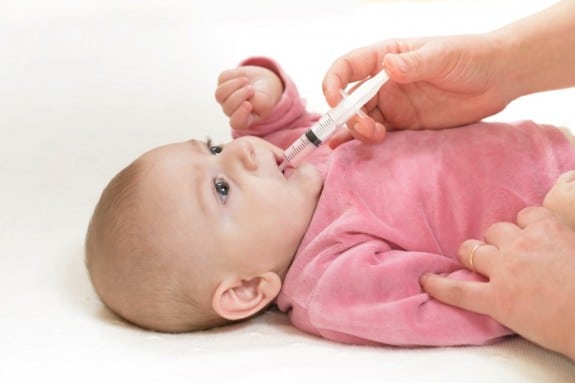Antibiotics are the most common medications prescribed to children. According to experts, a third of those prescribed aren’t necessary. Unfortunately, this could be a bit of a problem, according to researchers who say that antibiotics could create an imbalance in the gut microbes and lead to disease later on in life.
Imbalances in gut microbes – otherwise called dysbiosis – is being linked more and more to illnesses that now plague our society. Some of the most common include infections diseases, allergies and other autoimmune disorders, and obesity. One recent study even determined that gut microbes are important in the production of serotonin, a chemical in the brain associated with mood, behaviors, and emotions. Imbalances in this chemical have been linked to a number of health problems, including irritable bowel syndrome, osteoporosis, and cardiovascular disease.
“Diseases related to metabolism and the immune system are increasing dramatically, and in many cases, we don’t know why,” senior author Dan Knights, an assistant professor specializing in computational biology at the University of Minnesota, told Medical News Today. “Previous studies showed links between antibiotic use and unbalanced gut bacteria, and others showed links between unbalanced gut bacteria and adult disease. Over the past year, we synthesized hundreds of studies and found evidence of strong correlations between antibiotic use, changes in gut bacteria, and disease in adulthood.”
One such example showed that the use of antibiotics could destroy communities of gut bacteria that help immune cells mature, and even if those colonies return, they remain impaired. As such, allergies become a problem.
Another example found that antibiotic-induced imbalances in gut microbes led to an increased level of short-chain fatty acids. This increase could affect metabolism and possibly create an increased risk for obesity later on in life.
In addition to these examples, the team showed how an infant’s age can be predicted within 1.3 months, just based on the maturity of their gut microbiota. This may help to researchers create a sort of test, as well as treatments, for children in which gut bacteria are underdeveloped because of antibiotic use, or other reasons.
“We think these findings help develop a roadmap for future research to determine the health consequences of antibiotic use and for recommendations for prescribing them,” Knights said. “The clinical test we demonstrated would also allow us to think about interventions at an early age.”
He is calling for more research into four specific areas of antibiotic-related dysbiosis in children: loss of key populations, loss of diversity, effect on metabolism, and overgrowth of potentially harmful bacteria. He also says that a diverse cohort should be done on children to establish and determine a baseline for healthy gut bacteria development.
Related Articles:
- Alcohol Consumption in First 3-4 Weeks May Have Permanent Effects on Baby’s Brain
- Exposure to Multiple Languages May Make Children Better Communicators
- Nearly All Parents of Overweight Children Believe Their Child is “the Right Weight”







